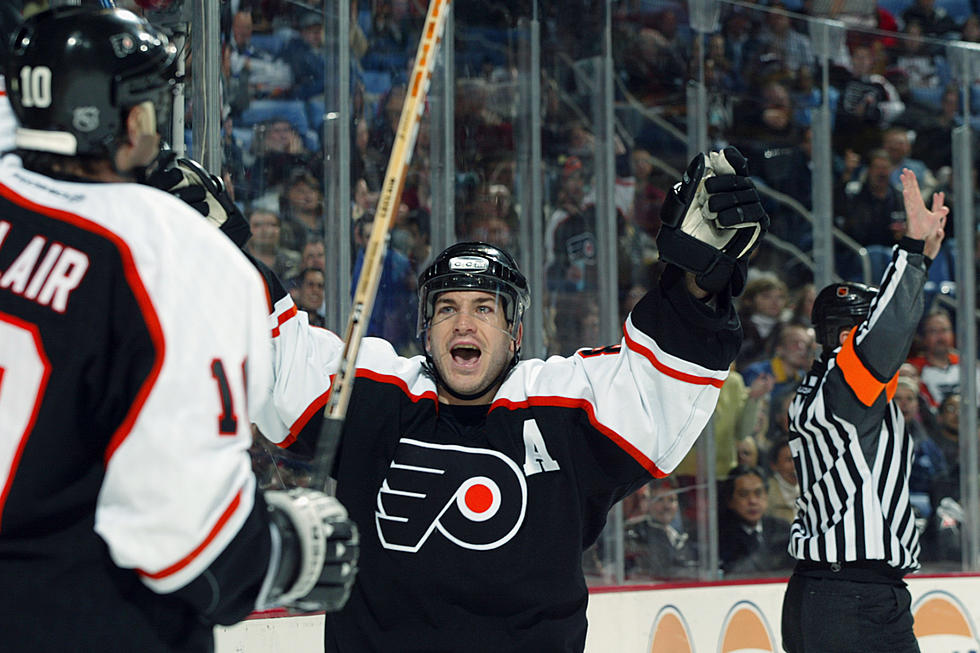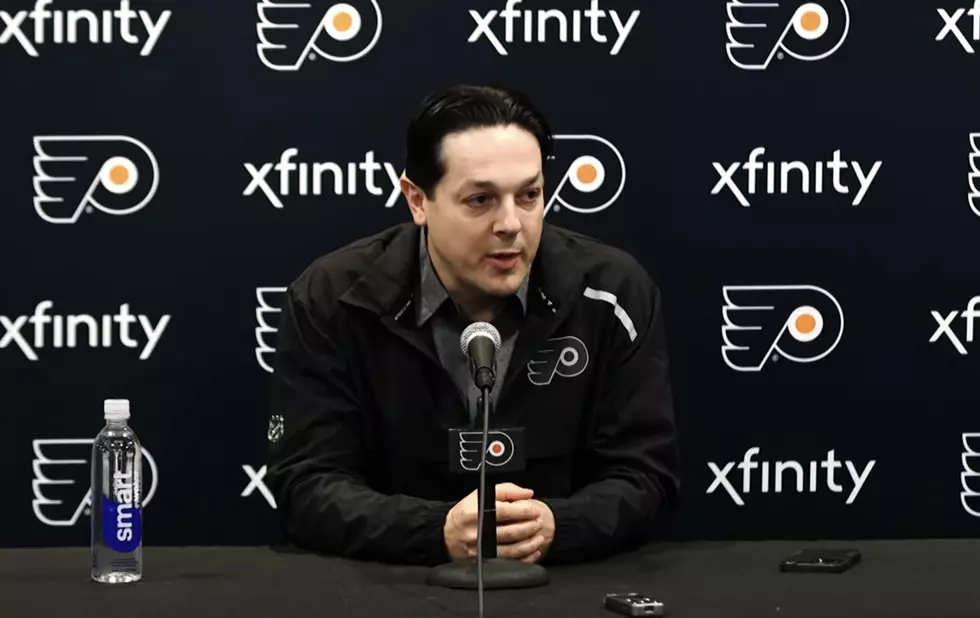
Flyers: Leadership at the Foundation of Recchi’s Storied Career
The words Hall of Fame already appear on Mark Recchi’s resume. In 2017, Recchi was inducted into the Hockey Hall of Fame among the game’s all-time greats. On Saturday, Recchi will be inducted into the Flyers Hall of Fame.
To get to that stature, a player obviously needs to have the on-ice performance, scoring goals, setting up teammates, delivering in the key moments. But there’s equally the off-ice contributions that can make a Hall-of-Fame player. Leadership is oftentimes at the forefront.
When Recchi won his first of three Stanley Cups in 1991 with the Pittsburgh Penguins as a 22-year-old, and subsequently joined the Flyers for the first time one season later, he was still building that foundation of leadership. When the Flyers traded Recchi in 1995 to Montreal, acquiring two other Flyers Hall-of-Famers in John LeClair and Eric Desjardins in the process, Recchi quickly had to become a leader on a younger team.
By the time he returned to Philadelphia in 1999, Recchi was much more equipped to be the leader that many reflected on ahead of his induction.
“When I first came to Philadelphia, I was still fairly young,” Recchi said. “I had five years between my two stints and I had taken on more of a leadership role in Montreal. I think I became more of a complete player by the time I got here in my second stint. I was more well-rounded.
“When you’re a young kid, coming in, you’re talented, a lot of times you think about offense. As I got older, I learned the importance of being a great two-way player and being a guy your teammates could trust. Your teammates knew you were going to be there every night for them. I wasn’t afraid to hold teammates accountable. They weren’t afraid to hold me accountable because they knew I’d handle it the right way. When you do that, you create a leadership that is very important.”
Recchi’s career took him many places and his post-playing career continues to do the same. After playing for seven different teams in his 22-year NHL career, Recchi has since been an assistant coach in Pittsburgh, New Jersey, and now Columbus.
Other teammates of Recchi’s during his second stint in Philadelphia remain with the Flyers today in various roles. Between long playoff runs in 2000 and 2004, Recchi was among the team leaders and at times could help carry the team to success.
“Rex had it all. The guy had heart, unbelievable talent,” LeClair said. “Rex was an unbelievable teammate. On and off the ice, he was a big leader for us. He’s one of my favorite teammates. He’s a guy, as a teammate and playing with him, just respected him so much – his ability and how he handled himself.
“Rex had a mindset that I'm going to make a difference every time he’s on the ice. It showed in his play. The guy played with so much energy. That kind of lifted the team, watching his energy, other guys really played off of that.”
“A Hall-of-Famer, great person. I remember as a rookie, I don’t think I paid for a meal,” Todd Fedoruk said. “Good guy in the locker room. I remember starting and these guys – coaches coach, but these guys coach your systems. I remember Rex always being involved in that.”
“A guy like Recchi was always somebody that I watched prepare to play, always picked his brain with certain things,” Patrick Sharp said. “I don’t know if he had a soft spot for me, but he always looked out for me, making sure I was comfortable and ready to do my thing. I was just always impressed that whatever line Rex was on turned out to be our best line.
“He was a great player, could carry a line himself, but he really complimented the players that he was playing with. He was a great guy off the ice as well.”
Recchi’s qualities of play on the ice and leadership both on and off it are still relevant to what the Flyers want to build today. President of Hockey Operations Keith Jones played with Recchi as a teammate. What Jones remembers from Recchi’s game are qualities he looks to identify in players today who could help the Flyers become a perennial contender again.
“I had a great respect for the way he played the game,” Jones said. “He had the it-factor, something we’re looking for in every player that we assess. He played aggressively when necessary, very rarely lost a puck battle, and scored some huge, timely goals while he was here in Philadelphia and in other places where he was winning Stanley Cups.”
It even reaches the top of the organization to Comcast Spectacor CEO Dan Hilferty. As the Flyers build a “New Era of Orange,” they also are taking a moment to honor Recchi as a permanent part of the Flyers family, a quality that they are striving to build every day.
“Mark, the way he played the game is how he lives his life,” Hilferty said. “He was in the corners all the time. He did the dirty work to make things happen for the club and for the city. And for him, in reality, it’s all about family. What we’re trying to do here in this “New Era of Orange” is to build family. Nobody exemplifies that better than Mark Recchi. To have him recognized on the rafters as a member of our elite Hall of Fame is so exciting to all of us.”
Kevin Durso is Flyers insider for 97.3 ESPN. Follow him on social media @Kevin_Durso.
Philadelphia Flyers Uniforms Through The Years
More From 97.3 ESPN









